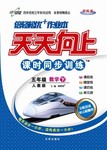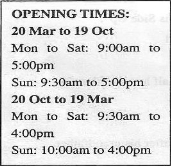题目内容
A new study warns that about thirty percent of the world's people may not have enough water by the year 2025.
A private American organization called Population Action International did the new study. It says more than three-hundred-thirty-five-million people lack enough water now. The people live in twenty-eight countries. Most of the countries are in Africa or the Middle East.
P-A-I researcher Robert Engelman says by the year 2025, about three-thousand-million people may lack water. At least 18 more countries are expected to have severe water problems. The demand for water keeps increasing. Yet the amount of water on Earth stays the same.
Mr. Engelman says the population in countries that lack water is growing faster than in other parts of the world. He says population growth in these countries will continue to increase.
The report says lack of water in the future may result in several problems. It may increase health problems. Lack of water often means drinking waters not safe. Mr. Engelman says there are problems all over the world because of diseases, such as cholera, which are carried in water. Lack of water may also result in more international conflict. Countries may have to compete for water in the future. Some countries now get sixty percent of their fresh water from other countries. This is true of Egypt, the Netherlands, Cambodia, Syria, Sudan, and Iraq. And the report says lack of water would affect the ability of developing to improve their economies. This is because new industries often need a large amount of water when they are beginning.
The Population Action International study gives several solutions to the water problem. One way, it says, is to find ways to use water for more than one purpose. Another way is to teach people to be careful not to waste water. A third way is to use less water of agriculture.
The report also says long-term solutions to the water problem must include controls on population growth. It says countries cannot provide clean water unless they slow population growth by limiting the number of children people have.
1. are expected to have severe water problems by the year 2025.
A. 46 countries B. 18 countries
C. 28 countries D. No countries
2. All the following are true except .
A. Lack of water may cause conflict between countries
B. New industries need a lot of water
C. There are solutions to the water problem
D. Egypt now has enough fresh water
3..What can be inferred from the passage? .
A. There is connection between providing clean water and slowing population growth
B. Lack of water may also result from international conflict
C. The ability of developing has nothing to do with lack of water
D. It is not known whether diseases have something to do with lack of water
4.The best title of the passage would be .
A. World Conflict B. World Water Shortage
C. Diseases and Water D. Population and Water
1.A
2.D
3.A
4.B
【解析】
试题分析:这篇文章主要介绍了当前世界水资源短缺的现状,有许多国家的许多人口生活用水不足,并且随着世界人口增长,这一问题可能会更加严重。
1. people live in twenty-eight countries和第三段第二句At least 18 more countries are expected to have severe water problems可知,目前世界上有28个国家水资源不足,到2025年,会增加至少18个国家缺水,所以到2025年,至少有46个国家水资源不足,故选A。
2. may have to compete for water in the future. Some countries now get sixty percent of their fresh water from other countries. This is true of Egypt, the Netherlands, Cambodia, Syria, Sudan, and Iraq可知埃及的水还有部分是从其他国家引入的,所以说埃及水资源充足是不对的,故选D。
3. 由最后一段The report also says long-term solutions to the water problem must include controls on population growth. It says countries cannot provide clean water unless they slow population growth by limiting the number of children people have可知,节约洁净水与减缓人口增长速度有关,故选A。
4.
考点:考查社会现象类阅读

 赢在课堂名师课时计划系列答案
赢在课堂名师课时计划系列答案 天天向上课时同步训练系列答案
天天向上课时同步训练系列答案后出生的学生,思想特殊、行为方式和价值观令人担忧。假如你是一名90后出生的学生李华,请根据下表中所提供信息以“Do trust us—a generation born in the 90s”为题写一篇英语演讲稿,以消除人们的忧虑。
90后的境遇 | 面临更多的升学和就业烦恼,所处环境竞争更加激烈。 | |
人们的忧虑 | 1.注重自我,轻视合作,…… 2.缺乏毅力,容易气馁,…… 3.盲目追求,渴望成名,…… | |
我们的长处 | 有勇气来面对挑战,…… (请考生联系自己拟定内容,再列举两至三点。) | |
注意:
1.对所给要点,逐一陈述,适当发挥,不要简单翻译。
2.词数120左右。开头和结尾已经写好,不计入总词数。
3.演讲稿中不得提及考生所在班级及本人姓名。
4.参考词汇:盲目:blindly 毅力:perseverance
Good afternoon, everyone!
The topic of my speech today is “Do trust us—a generation born in the 90s”.
Living in an environment full of fiercer competition, we are faced with more problems in entering higher schools and getting employed.
_____________________________________________________________________
_____________________________________________________________________
_____________________________________________________________________
Thank you for your listening.
 d the phone, tore off the ____ _, and shouted at the phone, "Yeah! Who do you think you are? Bad telephone!" And she _____ it into the wastebasket.
d the phone, tore off the ____ _, and shouted at the phone, "Yeah! Who do you think you are? Bad telephone!" And she _____ it into the wastebasket.
